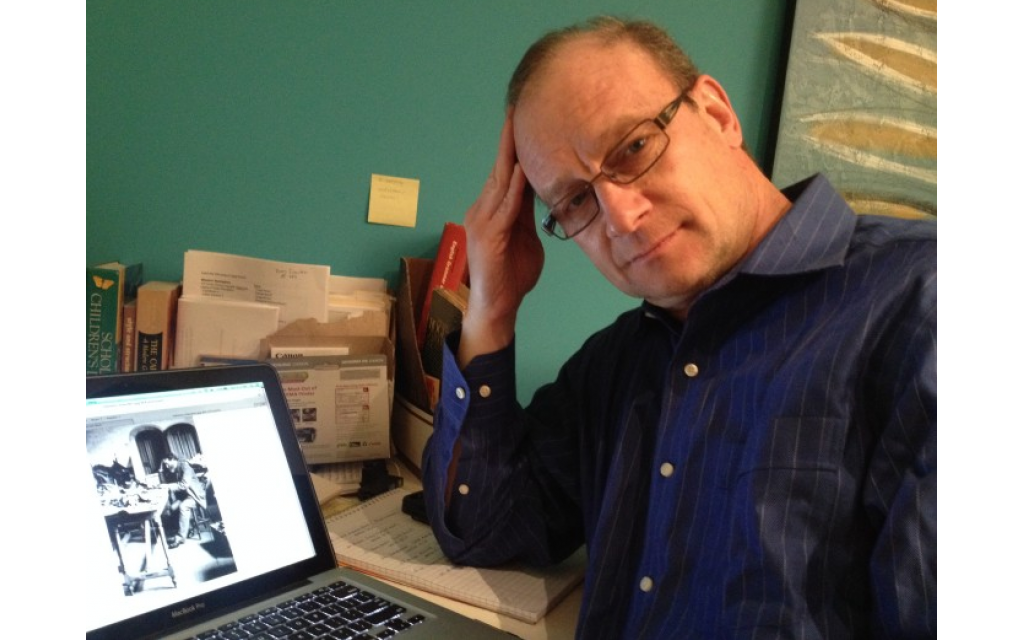The Label “Enemy of the People” is No Joke
The President may find it a convenient tactic, but there are risks in demonizing a group of people.
When I wrote about sports for my high school newspaper the diving coach enjoyed suggesting that I worked for Pravda, the official newspaper of the Communist Party of the Soviet Union.
The Soviet Union was an enemy of the United States.
Therefore, writing for Pravda made one an enemy of the United States.
Get The AJT Newsletter by email and never miss our top stories Free Sign Up
It was the coach’s joke, his way of needling me and I rolled with it.
I began writing this column aboard the flight home from my annual, and always too brief, sojourn to Maine and a cabin on a lake in a woods.
My in-flight entertainment was “The Post,” the based-on-a-true-story movie about the decision by The Washington Post in 1971 to publish the Pentagon Papers, after a federal court ordered The New York Times to stop publishing the leaked, classified history of U.S. involvement in the Vietnam War.
Toward the end of the movie, after the Supreme Court of the United States rules 6-3 in favor of the newspapers, an editor in The Post newsroom quotes aloud from the majority opinion written by Associate Justice Hugo Black: “In the First Amendment the Founding Fathers gave the free press the protection it must have to fulfill its essential role in our democracy. The press was to serve the governed, not the governors.”
Today, that reasoning seems lost on elected officials who fail to understand – or pretend not to, because the tactic serves their political purposes – that just because you don’t like what’s been reported, that does not make it “fake news.”
President Trump, whose record of false or misleading statements is prodigious, has asserted that “a large percentage” of the news media report “fake news,” thus qualifying them as “the enemy of the American people.”
More than 400 newspapers – large and small, rural and urban, red state and blue state – published editorials on Aug. 16 about the president’s rhetoric.
The Kansas City Star cautioned that his words “are no less dangerous because they happen to be strategic. That is what Nazis called Jews. It’s how Joseph Stalin’s critics were marked for execution.”
This is not a quarrel about the President’s policies.
This is an objection to his demonization of a profession that plays a critical role in maintaining the informed citizenry necessary to support a democracy – a responsibility shared by small town weeklies and big city dailies, by television stations in the smallest markets as well as the major broadcast and cable networks.
For the past couple of years, I have feared for the welfare of journalists (not only the reporters, but also the television producers and camera crews) who find themselves the target of venom encouraged from the podium at political rallies.
President Trump thrives on creating foils with whom he can spar publicly, but there are risks to this approach.
When you whip up a crowd, when you tell them that a particular group of people is their enemy, you bear responsibility for what happens next.
I worry that when the man at the microphone utters the equivalent of “won’t someone rid me of these meddlesome priests,” some true believer will take that as an order and journalists will be assaulted, in the field or in their newsrooms.
In the meantime, we are treated to red-faced men and women screaming epithets at journalists (who are big boys and girls and can handle verbal abuse) and waving their middle fingers.
To be sure, journalism is not without its flaws. (Just ask any journalist.)
And this president is not the first to have a beef with the news media.
Nonetheless, we (said the fellow with 40 years professional experience) are not enemies of the American people.
In the words of the Mercury News and East Bay Times, of San Jose, Calif.: “Journalists are trying to do a job. We’re not trying to tear down our nation. We’re trying to strengthen it. For we believe in the foundational premise behind the First Amendment – that our national is stronger if its people are informed.”





comments